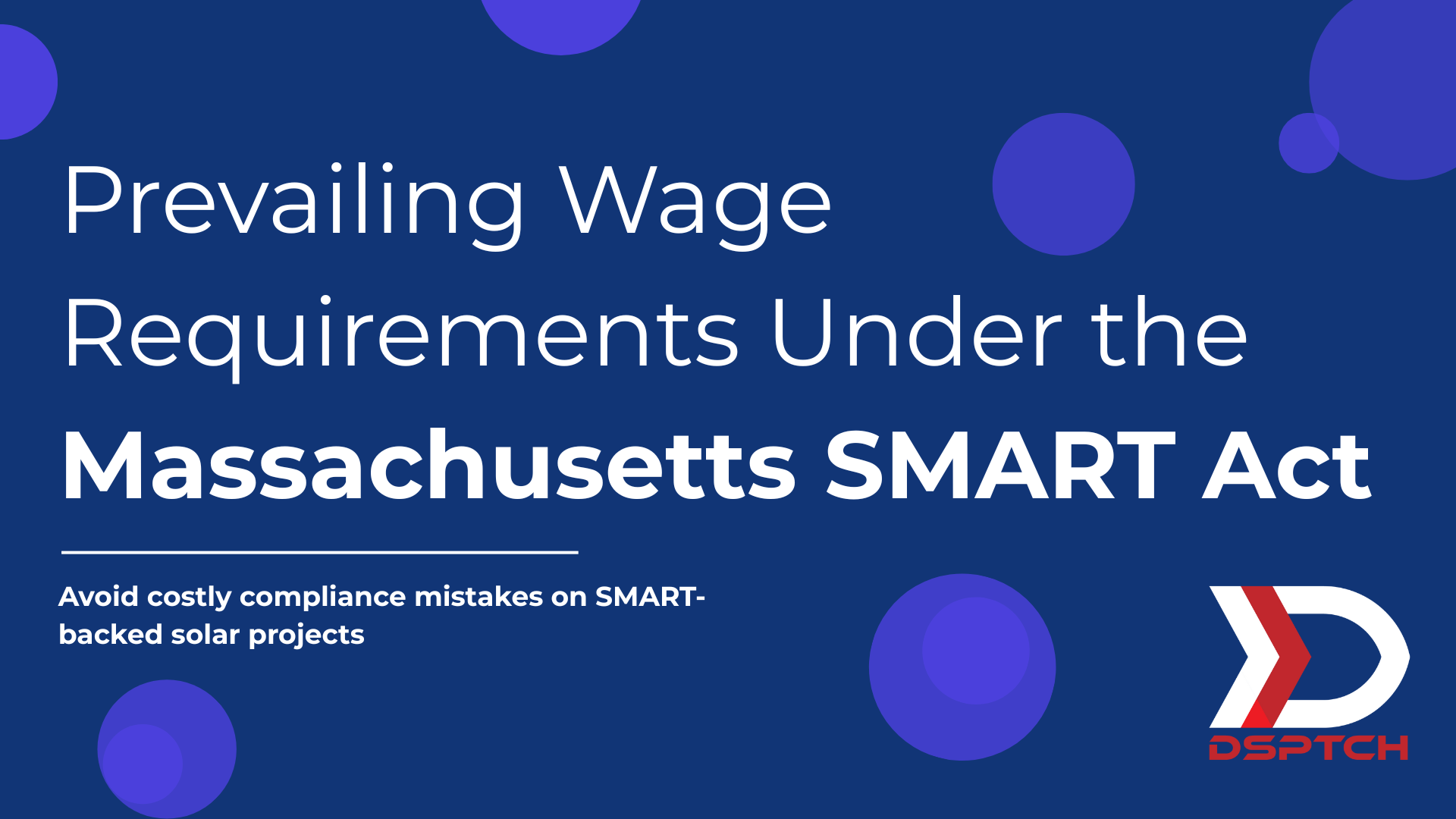June 5, 2025

The Solar Massachusetts Renewable Target (SMART) Program establishes incentives to encourage solar development in Massachusetts. The program is a 3,200 MW declining block program with a tariff-based incentive.
To be eligible for the Program, projects must be interconnected by one of the following utility companies: Eversource, National Grid, and/or Unitil. Each individual utility has an established block. For a full breakdown of all blocks (separated by utility and geographic location, please see page 13 of the SMART Program Summary Guide linked below).
Solar facilities with a maximum generating capacity of less than 25 kW (AC) may receive compensation under the tariff for a 10-year term, whereas solar facilities with a maximum generating capacity greater than 25 kW (AC) may receive compensation under the tariff for a 20-year term.
The amount of the SMART Incentive varies based on the factors such as utility, current block capacity (rates decline as capacity fills up), and system size. To calculate the current value of SMART Incentives for your project, please use the SMART Incentive Calculator linked below.
All solar facilities that exceed $1,000 in total project value and are receiving state funding (through the SMART program, or otherwise) are required to comply with the Prevailing Wage Act for all construction activities.
In the event that maintainence after the initial construction results in significant changes or improvements, prevailing wage laws may also apply.
All contractors working on eligible projects are required to adhere to the following compliance guidelines:
(1) Pay, at the minimum, the appropriate prevailing wage to all construction workers and apprentices involved in the project. For guidance on proper wage determinations, please visit the Massachusetts Department of Labor Standards website (linked below).
(2) Every contractor and subcontractor is required to submit an accurate copy of their certified payroll records to the awarding authority on a weekly basis. All certified payroll records must be kept on file for three years following payment. Additionally, each report must contain at least the employee’s name, address, occupational classification, hours worked and wages paid.
(3) A poster with the proper wage determination must be displayed prominently where all workers have access.
(4) All apprentices must be registered with the official Massachusetts Division of Apprenticeship Standards (DAS) if they are to be paid the lower apprentice rates. Similarly, all relevant apprentice programs must be officially registered with DAS. Otherwise, all unregistered apprentices must be paid the full prevailing wage rate for a journeyworker.
The Office of the Attorney General's Fair Labor Division is responsible for enforcing all prevailing wage laws in the state. Failure to comply with prevailing wage guidance subjects the violating contractor to potential civil and even criminal liability.
Civil penalties may include backpay (including up to 3x the amount of unpaid wages) along with the reimbursement for any employee's attorney's fee.
According to M.G.L. c. 149, § 27C(a)(1), criminal penalties for any employer, contractor, subcontractor, etc., who are found guilty of intentionally disregarding the prevailing wage guidance will be punished by a fine up to $25,000 and/or imprisonment for up to one year for first-time offenders. Repeat offenders will be punished with a fine up to $50,000 and/or imprisonment for up to two years.
